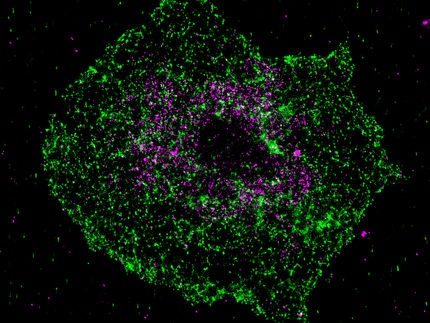Trophos awarded key US patent covering use of novel cardioprotective compound, TRO40303
Patent protection granted until 2028
Advertisement
Trophos SA announced that the United States Patent and Trademark Office (USPTO) has granted a patent for the use of their novel mitochondrial pore modulator, TRO40303, for cytoprotection. The patent provides coverage for the use of Trophos’ TRO40303 to reduce the cardiac reperfusion injury that contributes significantly to the morbidity and mortality seen after a heart attack (myocardial infarction - MI).
The U.S. Patent, No. 7,985,774, is entitled "Use of 3,5-seco-4-nor-cholestane derivatives for obtaining a cytoprotective drug". This covers most notably inter alia cardiovascular indications, including the lead indication in clinical development of reducing cardiac ischemia-reperfusion injury. The patent also covers the use of TRO40303 and derivatives in treating a wide range of non-neurological degenerative diseases characterized by pathological cell death, and/or cell dysfunctions leading to cell death. These cell dysfunctions may for example be of mitochondrial origin such as a reduction in the capability of generating ATP, an incapability of capturing and/or retaining calcium, or the generation of free radicals.
“The granting of this key patent in the US by the USPTO is an important milestone for Trophos. TRO40303 will shortly enter a phase II proof-of-concept study to treat cardiac ischemia-reperfusion injury (IRI) in acute MI patients as part of an EU funded international translational medicine project, MitoCare, led by Trophos,” said Damian Marron, CEO at Trophos. “TRO40303’s potential in degenerative diseases was discovered using Trophos’ pioneering, proprietary screening assays and was characterized and developed by Trophos’ expert R&D teams in collaboration with leading external collaborators.”
A treatment is urgently required globally to prevent cardiac reperfusion injury, which is a major problem in the care of MI patients despite the overall improvements in prognosis in recent years. There is still no existing treatment for the problem that contributes to long-term morbidity, progression to heart failure and death following an MI. The role of mitochondrial permeability transition in cardiac reperfusion injury has recently been validated clinically. This creates a tremendous opportunity for Trophos’ novel mitochondrial pore modulator, TRO40303, both discovered and developed in the Trophos laboratories to target this mechanism. There are around 1.6 million cardiac reperfusion procedures performed in hospitals and specialist clinics each year in the western world alone.
The phase II proof-of-concept study of TRO40303 is to be sponsored by Trophos and performed as part of the EU funded MitoCare project (see below) by a consortium of prominent European clinical investigators, all of whom have extensive prior experience conducting and collaborating in large multi-centre clinical trials in cardiac IRI. The principal investigator will be professor Dan Atar from Oslo University Hospital, Norway. The study will be a placebo-controlled, phase II proof-of-concept study in acute MI patients with large myocardial infarct undergoing percutaneous transluminal coronary angioplasty (PTCA also known as coronary or balloon angioplasty) during percutaneous coronary intervention (PCI). TRO40303 will be administered as a single iv infusion prior to the reperfusion by angioplasty.




















































